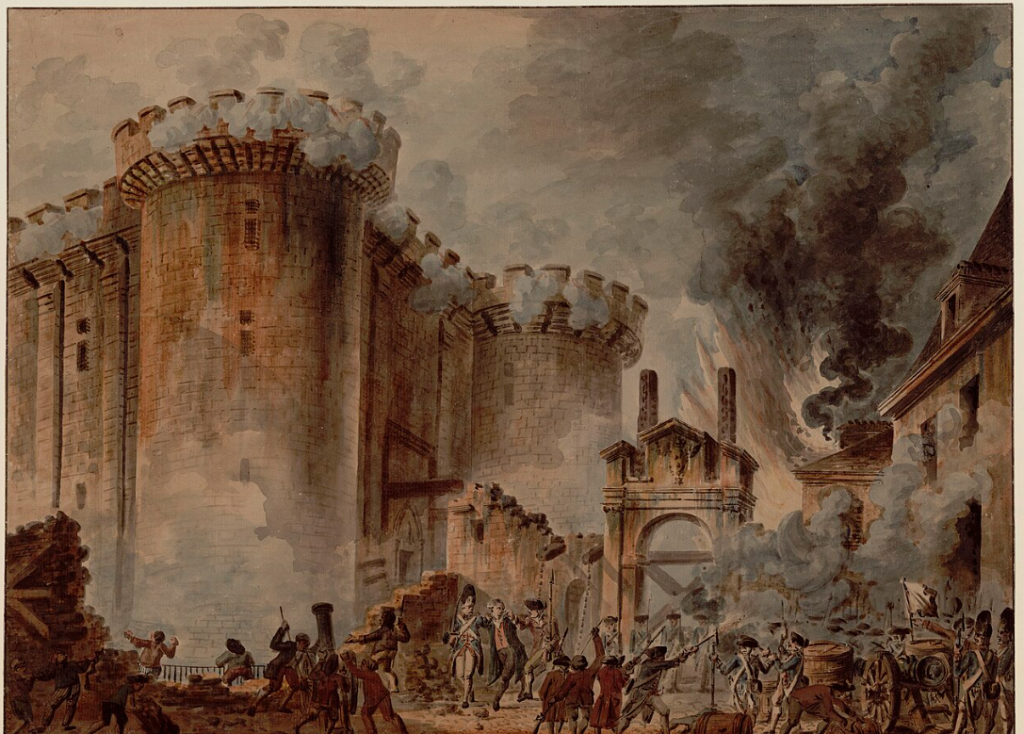
The Storming of the Bastille, which occurred on July 14, 1789, was a key event in the early days of the French Revolution. The Bastille was a fortress-prison in Paris, symbolizing the tyranny and unchecked power of the monarchy. At the time, King Louis XVI was facing increasing unrest due to economic hardship, widespread inequality, and the influence of Enlightenment ideas questioning traditional authority.
On July 14, a large crowd of Parisians, many of whom were frustrated by food shortages and high bread prices, gathered outside the Bastille. They were also seeking gunpowder and weapons to defend themselves against potential royal troops. Tensions quickly escalated, and after several hours of fighting, the Bastille was stormed. The prison’s governor, Bernard-René de Launay, was captured and eventually killed by the mob.
The storming of the Bastille was significant for several reasons:
- Symbolic Importance: The Bastille represented the arbitrary power of the king and the monarchy. Its fall symbolized the end of royal tyranny and the beginning of a new era of liberty and republicanism.
- Popular Uprising: The event marked the first major act of defiance by the French people against their rulers, signaling the widespread desire for change. It was the spark that ignited the broader revolution, which would eventually lead to the downfall of the monarchy.
- Political Impact: Although the Bastille held very few prisoners at the time, its storming sent a strong message to the king and the aristocracy. It was seen as a direct challenge to the old order and a call for reform.
Today, July 14 is celebrated as Bastille Day, France’s national holiday, symbolizing the country’s fight for liberty, equality, and fraternity.